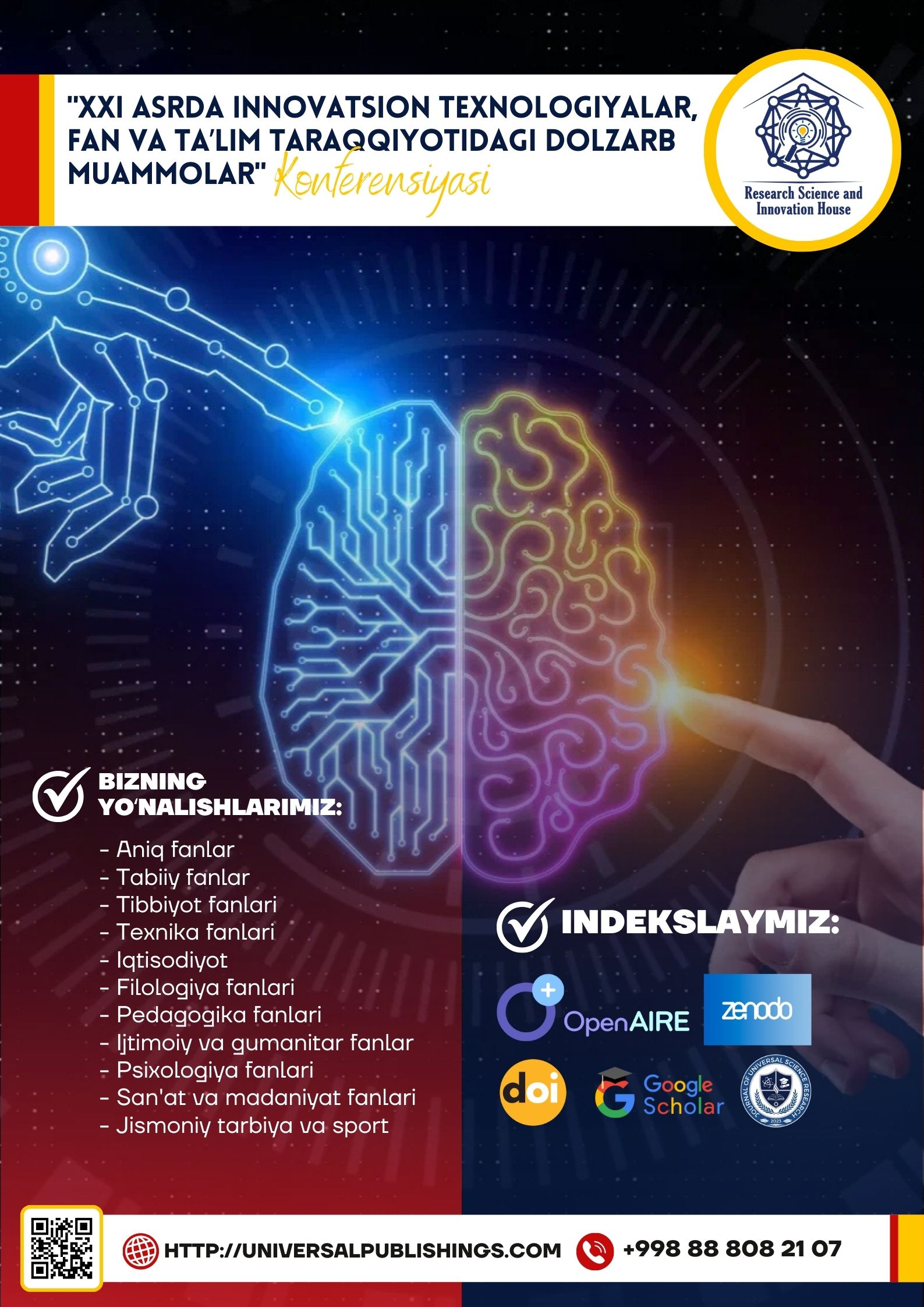Abstract
The article explores substantivization, the linguistic process through which adjectives take on the function of nouns. This phenomenon allows adjectives to act independently as nouns, representing broad categories of people, abstract concepts, or collective ideas. For instance, adjectives like “rich” and “poor” in English can stand alone as nouns to signify groups of people with those traits. The article explains the mechanics of substantivization, highlighting how adjectives can be pluralized, used with articles, or abstracted to refer to collective qualities. The discussion includes examples from other languages, like French and German, illustrating how this process varies across linguistic contexts and sometimes involves gender changes in languages with grammatical gender, such as Spanish. Substantivization provides efficiency and clarity in communication by enabling speakers to convey complex ideas and social identities in a streamlined form. This process also reflects cultural perspectives, allowing languages to categorize and discuss groups with shared characteristics. The article concludes by emphasizing the versatility and adaptability of substantivization as a linguistic tool that enhances expression and meets evolving communicative needs.
References
1. Biber, D., Conrad, S., & Leech, G. (2002). Longman Student Grammar of Spoken and Written English. Pearson Education Limited.
2. Dixon, R. M. W. (2005). A Semantic Approach to English Grammar. Oxford University Press.
3. Haspelmath, M. (2010). Understanding Morphology. Oxford University Press.
4. Hopper, P. J., & Thompson, S. A. (1984). The discourse basis for lexical categories in universal grammar. *Language*, 60(4), 703-752.
5. Huddleston, R., & Pullum, G. K. (2002). The Cambridge Grammar of the English Language. Cambridge University Press.
6. Payne, T. E. (2006). Exploring Language Structure: A Student’s Guide. Cambridge University Press.
7. Quirk, R., Greenbaum, S., Leech, G., & Svartvik, J. (1985). A Comprehensive Grammar of the English Language. Longman.
8. Teshaboyeva, N., & Mamayoqubova, S. (2020). COMMUNICATIVE APPROACH TO LANGUAGE TEACHING. In МОЛОДОЙ ИССЛЕДОВАТЕЛЬ: ВЫЗОВЫ И ПЕРСПЕКТИВЫ (pp. 409-414).
9. Teshaboyeva, N. (2020). LINGUISTIC PERSONALITY, ITS STRUCTURAL CHARACTERISTICS IN THE NEW PERSPECTIVE DIRECTIONS. In МОЛОДОЙ ИССЛЕДОВАТЕЛЬ: ВЫЗОВЫ И ПЕРСПЕКТИВЫ (pp. 415-420).
10. Teshaboyeva, N. Z. (2019). TEACHING ENGLISH THROUGH LITERATURE INTESL AND TEFL CLASSROOMS. In СОВРЕМЕННЫЕ ТЕХНОЛОГИИ: АКТУАЛЬНЫЕ ВОПРОСЫ, ДОСТИЖЕНИЯ И ИННОВАЦИИ (pp. 82-84).
11. Хидирова, Д., & Тешабоева, Н. (2022). Pedagogical conditions for the development of the healthy thinking in students. Zamonaviy innovatsion tadqiqotlarning dolzarb muammolari va rivojlanish tendensiyalari: yechimlar va istiqbollar, 1(1), 120-122.
12. Gaybullayeva, N. D. K., & Kizi, T. N. Z. (2022). THE ROLE OF INNOVATIVE METHODS FOR LISTENING COMPREHENSION IN TEACHING LANGUAGE LEARNERS FOREIGN LANGUAGES AND MAINLY ENGLISH. Central Asian Research Journal for Interdisciplinary Studies (CARJIS), 2(10), 8-10.
13. Teshaboyeva Nafisa Zubaydulla qizi, Jurayev Muhammadrahim Murod o’g’li, & Mamirova Munisa Rajab qizi. (2021). Language Learning Culturally and the Role of Literature in Teaching Process. Central Asian Journal of Theoretical and Applied Science, 2(3), 1-5. Retrieved from https://www.cajotas.centralasianstudies.org/index.php/CAJOTAS/article/view/84
14. Teshaboyeva, N. (2023). THE IMPORTANCE OF TOURISM IN PRESENT DAY. Журнал иностранных языков и лингвистики, 5(5).
15. Teshaboyeva, N. (2023). THE MODERN INNOVATIVE TECHNOLOGIES IN TEACHING FOREIGN LANGUAGES. Журнал иностранных языков и лингвистики, 5(5).
16. Teshaboyeva, N. Z. (2023, November). Adjective word group and its types. In " Conference on Universal Science Research 2023" (Vol. 1, No. 11, pp. 59-61).
17. Teshaboyeva, N. Z. (2023, November). Modifications of Consonants in Connected speech. In " Conference on Universal Science Research 2023" (Vol. 1, No. 11, pp. 7-9).
18. Teshaboyeva, N., & Rayimberdiyev, S. (2023, May). THE IMPORTANCE OF USING MULTIMEDIA TECHNOLOGY IN TEACHING ENGLISH CLASSES. In Academic International Conference on Multi-Disciplinary Studies and Education (Vol. 1, No. 8, pp. 149-153).
19. Nafisa, T., & Marina, S. (2023). TEACHING AND LEARNING OF ENGLISH VOCABULARY IN TESL AND TEFL CLASSROOMS. International Journal of Contemporary Scientific and Technical Research, 465-469.
20. Ibrohimovna, X. M. (2023). The Importance of Methods in Language Teaching Process. Web of Scholars: Multidimensional Research Journal, 2(1), 20-23.
21. Тешабоева, Н. (2023). Teaching writing as a major part of productive skills in mixed ability classes . Информатика и инженерные технологии, 1(2), 652–656. извлечено от https://inlibrary.uz/index.php/computer-engineering/article/view/25759
22. Teshaboyeva Nafisa Zubaydulla kizi, & Akramov Ibrohimjon. (2023). WORD FORMATION. COMPOUNDING. "XXI ASRDA INNOVATSION TEXNOLOGIYALAR, FAN VA TAʼLIM TARAQQIYOTIDAGI DOLZARB MUAMMOLAR" Nomli Respublika Ilmiy-Amaliy Konferensiyasi, 1(12), 109–113. Retrieved from https://universalpublishings.com/index.php/itfttdm/article/view/3187
23. Teshaboyeva, N., & Yakubova, N. (2023). CHANGES OF MEANING OF WORDS. Центральноазиатский журнал образования и инноваций, 2(12), 126-129.
24. Sharifova Dinora Tohir qizi, & Teshaboyeva Nafisa. (2023). “ NOUNS AND THEIR GRAMMATICAL CATEGORIES”. Новости образования: исследование в XXI веке, 2(16), 292–297. извлечено от http://nauchniyimpuls.ru/index.php/noiv/article/view/13128
25. Teshaboyeva Nafisa Zubaydulla kizi, & Akramov Ibrohimjon. (2023). WORD FORMATION. COMPOUNDING. "XXI ASRDA INNOVATSION TEXNOLOGIYALAR, FAN VA TAʼLIM TARAQQIYOTIDAGI DOLZARB MUAMMOLAR" Nomli Respublika Ilmiy-Amaliy Konferensiyasi, 1(12), 109–113. Retrieved from https://universalpublishings.com/index.php/itfttdm/article/view/3187
26. Qodirova Aziza Yunusovna, & Teshaboyeva Nafisa Zubaydulla qizi. (2023). “VERBS AND THEIR GRAMMATICAL CATEGORIES”. Новости образования: исследование в XXI веке, 2(16), 280–283. извлечено от http://nauchniyimpuls.ru/index.php/noiv/article/view/13126
27. Tuxtayeva Aziza Ilhom qizi, & Teshaboyeva Nafisa. (2023). Word Formation: Compounding . "Conference on Universal Science Research 2023", 1(12), 113–115. Retrieved from https://universalpublishings.com/index.php/cusr/article/view/3185
28. Teshaboyeva Nafisa Zubaydulla, & Iskandarova Sarvinoz Shukurullo qizi. (2023). THE CLASSIFICATION OF SYNONYMS AND THEIR SPECIFIC FEATURES. "XXI ASRDA INNOVATSION TEXNOLOGIYALAR, FAN VA TAʼLIM TARAQQIYOTIDAGI DOLZARB MUAMMOLAR" Nomli Respublika Ilmiy-Amaliy Konferensiyasi, 1(12), 126–131. Retrieved from https://universalpublishings.com/index.php/itfttdm/article/view/3191
29. Тешабоева, Н. (2023). Teaching writing as a major part of productive skills in mixed ability classes . Информатика и инженерные технологии, 1(2), 652–656. извлечено от https://inlibrary.uz/index.php/computer-engineering/article/view/25759

